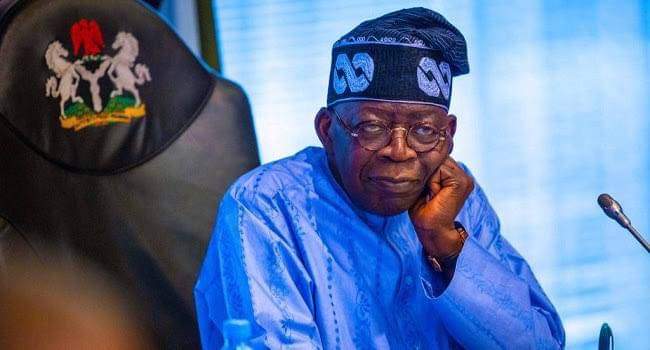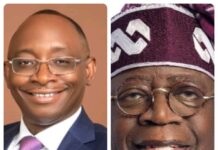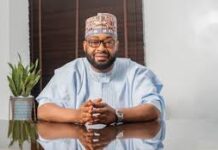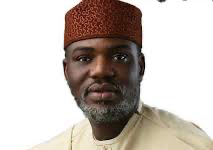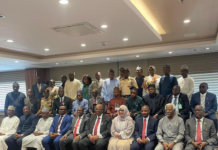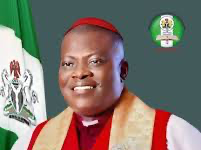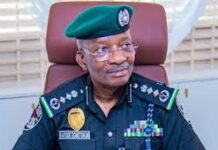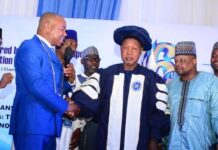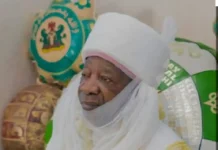Tinubu’s Independence Broadcast: National Celebrations as Opportunities for Stock Taking By Zekeri Idakwo Laruba
POLITICS DIGEST – Nigeria’s Independence Day is celebrated annually on October 1 to mark the nation’s freedom from British rule, beginning with the President’s address to the people which is broadcast on radio and television.
The day is marked by festivities across various sectors, including the Nigerian Armed Forces, Nigeria Police Force, Ministry of Foreign Affairs, other government offices and educational institutions.
Schools perform ceremonial march-pasts in state capitals and local government areas, while individuals and groups celebrate in the streets, often wearing green-white-green. However, in recent years, public disillusionment with the economy, ethnic tensions and insecurity have led to more subdued celebrations, hence the government of the day now use the occasion to outline their achievements, issues and challenges instead of the usual fanfare the day is meant for.
Although, President Bola Tinubu’s speech had an appealing tone, the citizens were not really enthusiastic about it because of the widespread belief that it will not put food on their table or put fuel in their tanks.
This is because the optics aren’t looking good, as people demand good governance that will ease their struggles and hardship. The speech highlighted his achievements and referenced past heroes’ efforts. While the speech touched on every aspect of the country’s issues, it however hinged on promises that many Nigerians have grown accustomed to.
On the economy, President Tinubu stated: “The economy is undergoing necessary reforms and retooling to serve us better and more sustainably. If we don’t correct the fiscal misalignments that led to the current economic downturn, our country will face an uncertain future and unimaginable consequences.”
While this is true, blaming past governments, which he was instrumental to its emergence, won’t help. People want solutions and not buck-passing.
He also said: “Thanks to the reforms, our country attracted foreign direct investments worth over $30 billion in the past one year.” Although this sounds good on paper, nonetheless, citizens are not interested in figures that don’t address their direct needs immediately.
Regarding the oil sector, President Tinubu said, “We are committed to changing the fortune positively. The ExxonMobil Seplat divestment will receive ministerial approval in a matter of days, having been concluded by the regulator, NUPRC, in line with the Petroleum Industry Act, PIA….”
This is a good move that deserves commendation, but I expected him to speak about the Dangote Refinery, especially since Nigerians’ hopes were dashed regarding petroleum pump prices. As the petroleum minister, President Tinubu should have addressed the back-and-forth between NNPC and Dangote’s refinery.
As usual, he acknowledged the suffering in the country and pleaded for more time and patience, saying, “Our administration knows many of you struggle with rising living costs and the search for meaningful employment. I assure you that your voices are heard. We are committed to finding sustainable solutions to alleviate citizens’ suffering.” This is somewhat reassuring, but again many have lost hope in this administration.
Notably, President Tinubu emphasised unity in the face of challenges, stating, “Our nation has survived many crises and upheavals that led to the dissolution and disintegration of many other nations worldwide.” He’s right; Nigerians are resilient and peace-loving despite the hardship.
Another crucial area President Tinubu acknowledged in his speech is security. He stated that “within one year, our government has eliminated Boko Haram and bandit commanders faster than ever. As of the last count, over 300 Boko Haram and bandit commanders have been eliminated by our gallant troops in the Northeast, Northwest, and some other parts of the country.”
Read Also:
I must say that this administration has tried, at least in the past few weeks. He also noted that “we expect to see a leap in food production and a downward spiral in food costs.” This is very important because, without security, food production and distribution cannot take place, especially in the northeast where banditry and terrorism are rife.
The only new thing in President Tinubu’s second independence speech since he assumed office is the announcement of a 30-day National Youth Conference to address the diverse challenges and opportunities confronting young people. This is very important because there must be inclusive policies that involve the youth, who constitute more than 60% of the population. He said, “It will provoke meaningful dialogue and empower young people to participate actively in nation-building. The 30-day Conference, according to him, will unite young people nationwide to collaboratively develop solutions to issues such as education, employment, innovation, security, and social justice.
Similarly, President Tinubu’s administration has responded to the flood disaster in a very presidential manner. His actions and words have been commendable, especially since our leaders aren’t usually known for visiting victims of natural disasters. However, this is exactly what a leader should do in times of crisis.
President Tinubu expressed his sympathy for the flood victims and took proactive measures to address the issue. He visited the affected areas, following Vice President Kashim Shettima’s visit to Maiduguri, to assure the people that the federal government stands with them in their time of need. Furthermore, the Federal Executive Council has approved a Disaster Relief Fund to mobilise private and public sector funds to respond faster to emergencies.
I commend President Tinubu’s administration for taking proactive measures to address the issue of flooding, particularly the integrity tests of the dams to avert future disasters. His commitment to providing support to victims through relevant agencies is also noteworthy. Overall, President Tinubu’s response to the flood disaster has been impressive, and his actions and words have demonstrated true leadership.
Regarding the CBN’s monetary policy, the governor’s efforts have been impressive, but the exchange rate on the parallel market remains a concern. As of October 30, the exchange rate for a dollar to naira exceeded N1,600. However, President Tinubu highlighted the progress made in managing the foreign exchange market, stating:
“We have adopted a more disciplined approach to monetary policy management, ensuring stability and predictability in our foreign exchange market. We inherited a reserve of over $33 billion 16 months ago and have since paid back the inherited forex backlog of $7 billion.
“We have cleared the ways and means of debt of over N30 trillion and reduced the debt service ratio from 97% to 68%. Despite these efforts, we have maintained our foreign reserve at $37 billion, meeting all our obligations and paying our bills.”
While the president’s claims are commendable, the parallel market exchange rate suggests that more work is needed to address the foreign exchange challenges.
In the same vein, he said the government is working to reduce the cost of living by implementing various measures, including investing in mechanised farming and establishing a local assembly plant for farm equipment.
“The government is encouraging states to invest in mechanised farming and is supplying fertiliser and tractors to support the initiative. This I believe is a good move by the federal government to boost food production,” he said.
On the issue of transportation, he said his government is expanding the adoption of Compressed Natural Gas for mass transit and is willing to assist states in acquiring CNG buses for cheaper public transportation.
With this development, transportation cost will be reduced. However, timely implementation is essential.
Overall, President Tinubu’s speech is a comprehensive one, but Nigerians want to see a lasting solution to the lingering challenges of economic hardship.

